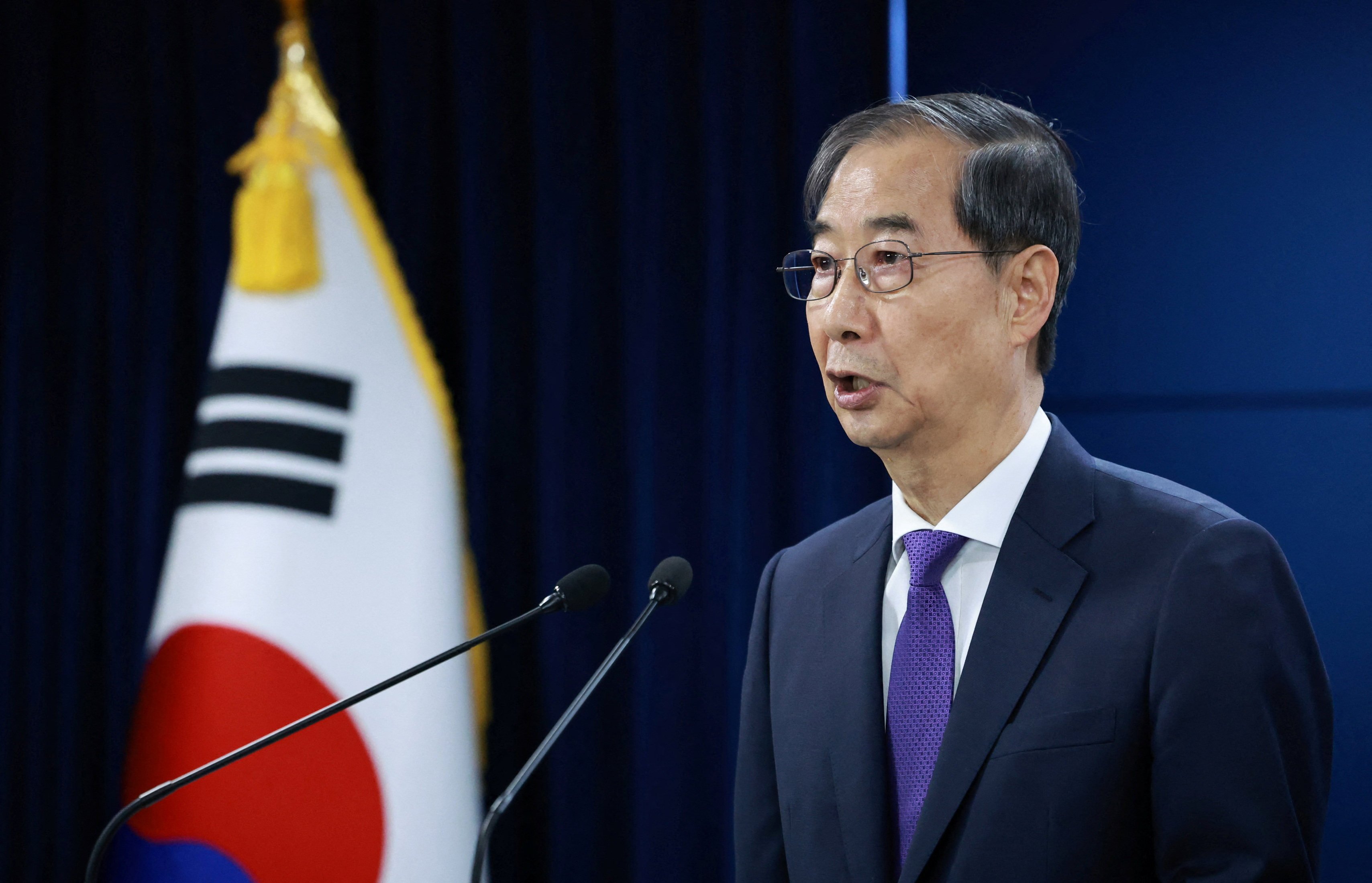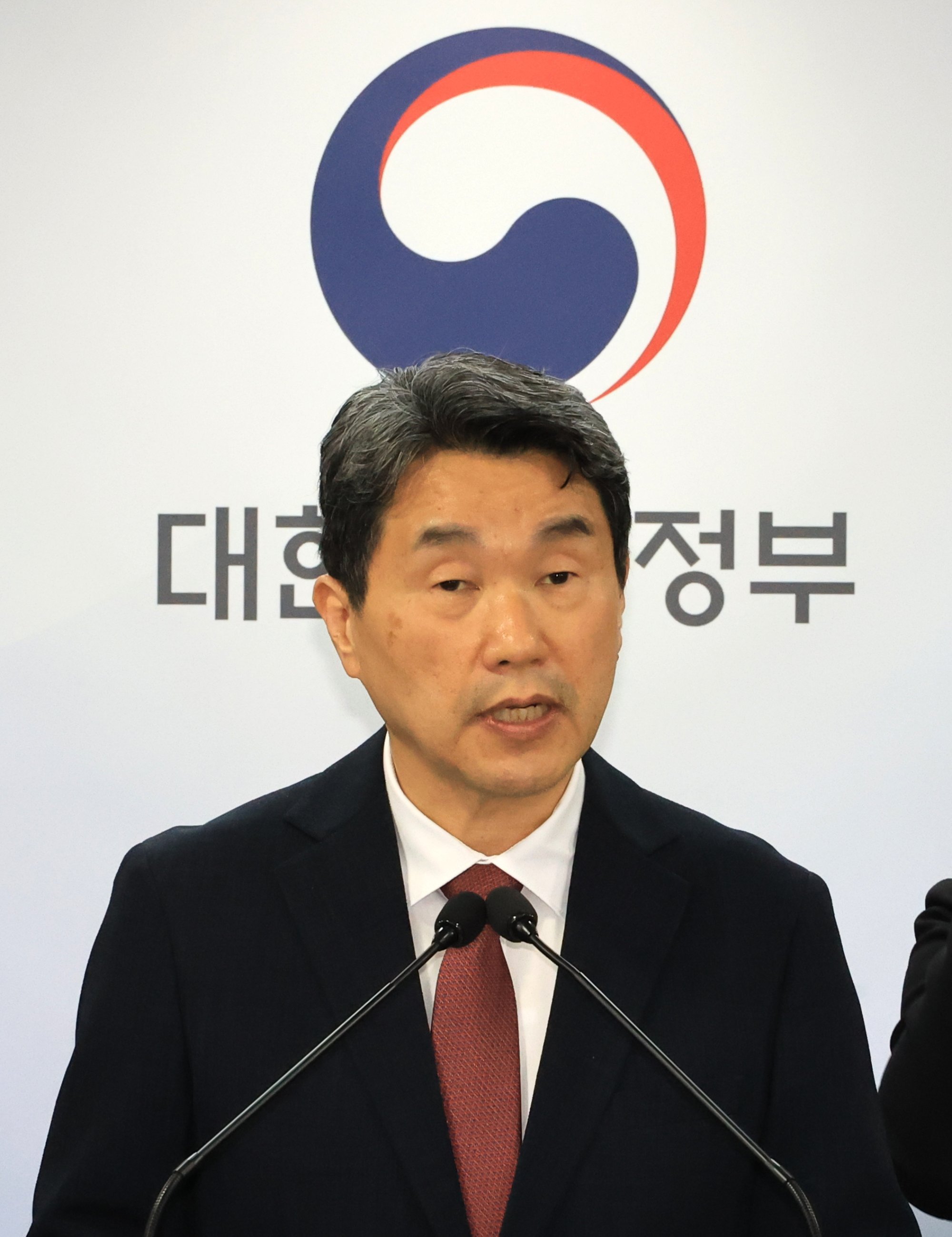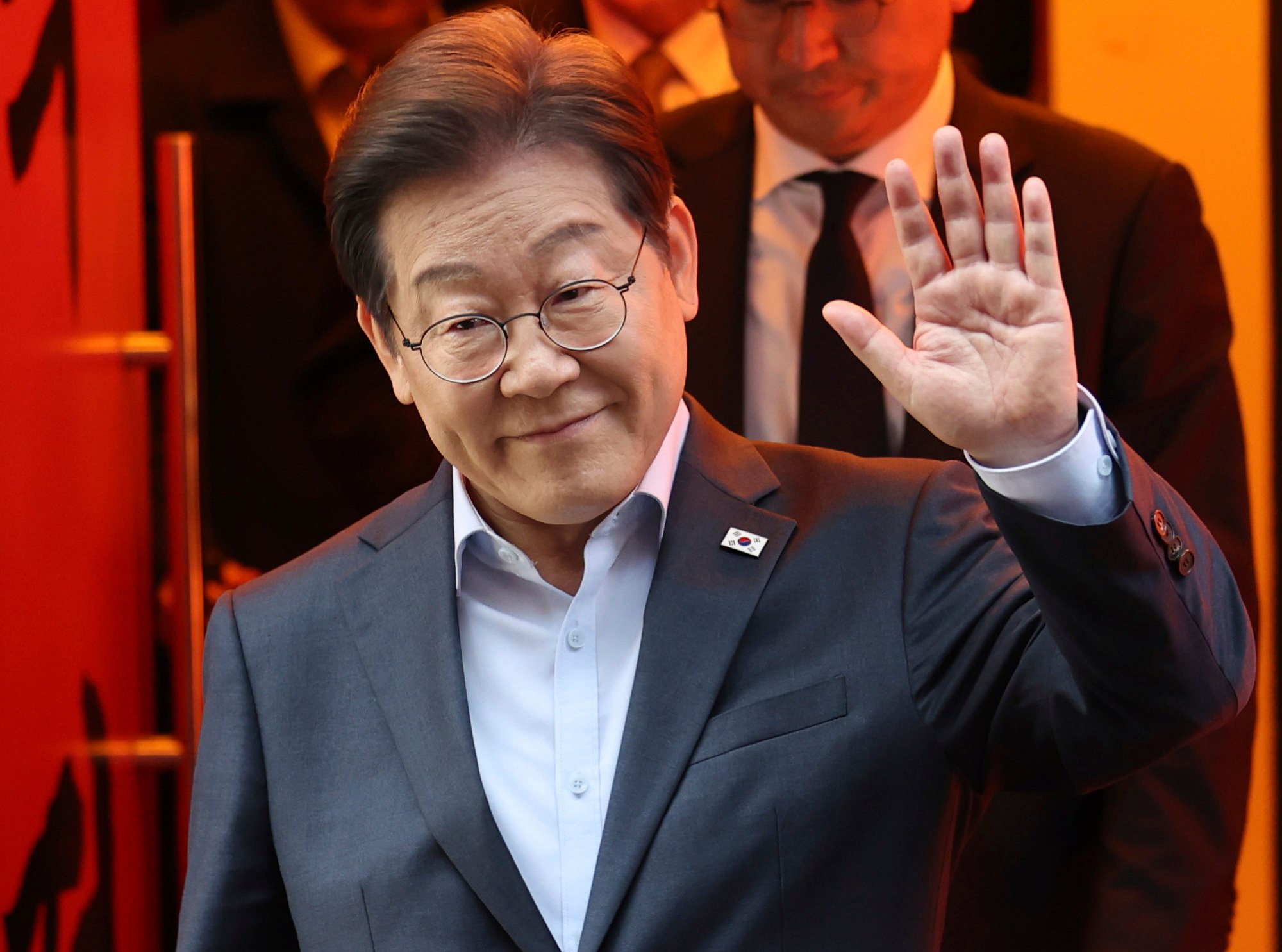South Korea presidential race heats up with Han’s resignation, court ruling against Lee
Han Duck-soo’s resignation amid speculation about entering the presidential race complicates the contest, and coincides with a court ruling against rival Lee Jae-myung

The race for the presidency in South Korea intensified this week as the acting leader, Han Duck-soo, announced his resignation amid speculation he plans to run in next month’s election, just as a surprise court ruling dented the candidacy of opposition front-runner Lee Jae-myung.
Han stepped down from his post on Thursday, and is expected to launch his campaign for the June 3 snap election, amid criticism for allegedly exploiting his position for electoral advantage.
The 75-year-old veteran administrator ended weeks of speculation with his announcement, which comes amid ongoing political turbulence following the impeachment of former conservative president Yoon Suk-yeol.
“I have stepped down from my role as acting president and prime minister,” Han said in a written statement. “I do so to take on a heavier responsibility and help steer the nation through its current crisis.”
Han assumed the acting presidency after Yoon was ousted in December for attempting to impose martial law, which the court ruled unconstitutional.
With Han’s departure, Finance Minister Choi Sang-mok was to serve as acting president in accordance with succession laws, but Choi also stepped down, as the opposition-controlled National Assembly moved to impeach him. Consequently, Education Minister Lee Ju-ho will take over as acting president.

Han’s resignation coincided with a surprise Supreme Court decision to overturn a lower court acquittal of liberal Democratic Party of Korea (DPK) presidential front runner Lee Jae-myung on charges of violating election laws.
While the timing has fuelled speculation by Lee’s supporters that Han’s announcement might be a coordinated move with the Supreme Court’s ruling, which was widely packed with Yoon appointees, legal experts say the reversal is unlikely to affect the election timeline or Lee’s candidacy.
“A new verdict won’t be issued before the June vote, as appeals typically take around three months,” said Rhee Joo-won, a law professor at Korea University. “Although this may dent Lee’s support among moderate voters, he remains legally eligible to run.”
If elected, Lee would automatically see all ongoing criminal proceedings against him suspended while in office, Rhee and other legal experts said.
Still, the Supreme Court’s move prompted fierce backlash from DPK lawmakers.
“This is nothing short of a judicial coup d’état,” said senior DPK legislator Lee Eon-joo. “How can the courts override the will of the people with such a bewildering ruling?”
Lee suggested it was no coincidence that Han resigned and announced his candidacy just after the court’s “incomprehensible” decision.

“South Korea may appear to be a liberal democracy, but it is dominated by an entrenched elite. Now that this cartel is exposed, they’re circling the wagons to protect their power,” she said.
Critics argue Han is capitalising on the high visibility he gained during Yoon’s impeachment to boost his presidential chances.
They also accuse him of using his brief tenure to polish his public image – highlighting progress in US-Korea tariff negotiations and defence ties.
A career bureaucrat and seasoned diplomat, Han previously served as prime minister under both liberal and conservative governments, and played a key role in negotiating the 2010 US-Korea Free Trade Agreement.
His entry into the race complicates the conservative field, likely sparking negotiations to consolidate support behind a single candidate against Lee Jae-myung.
Among the remaining People Power Party (PPP) hopefuls, former Labor Minister Kim Moon-soo has indicated a willingness to unify with Han, while former PPP leader and ex-Justice Minister Han Dong-hoon has yet to commit.
“Many voters see Han Duck-soo as a continuation of Yoon’s presidency, given he served as prime minister throughout Yoon’s shortened term,” said Jhee Byong-kuen, a political-science professor at Chosun University.
“This election is shaping up to be a referendum on the Yoon administration.”
A poll released on Thursday by four research firms, including Korea Research, showed Lee Jae-myung leading in hypothetical three-way contests.
A separate mid-April survey by KBS and Korea Research found that 66 per cent of respondents opposed Han’s presidential bid, while only 24 per cent supported it.
Han also came under fire earlier this year for attempting to appoint two Constitutional Court justices, a move the court struck down as overreach.
He later claimed he had merely “announced potential nominees,” not formally appointed them – an explanation critics derided as disingenuous.
Amid rising concerns, some fear the caretaker government may be rushing trade talks with the United States to score political points. US Treasury Secretary Scott Bessent fuelled speculation on Tuesday by suggesting that South Korea and Japan were eager to conclude trade negotiations ahead of their elections.
South Korea’s finance ministry denied the claim, stating it had never conveyed such intentions to Washington.
Instead, it said Korean officials had asked US counterparts to consider the domestic election schedule and the need for National Assembly engagement.
The DPK sharply criticised Han, accusing him of endangering national interests for political gain and labelling him an “acting head of insurrection” for allegedly conspiring with Yoon during the martial law scandal.
“If Han insists on running, he will face the people’s verdict – as a puppet of Yoon, complicit in a failed coup,” said DPK floor leader Park Chan-dae on Wednesday.